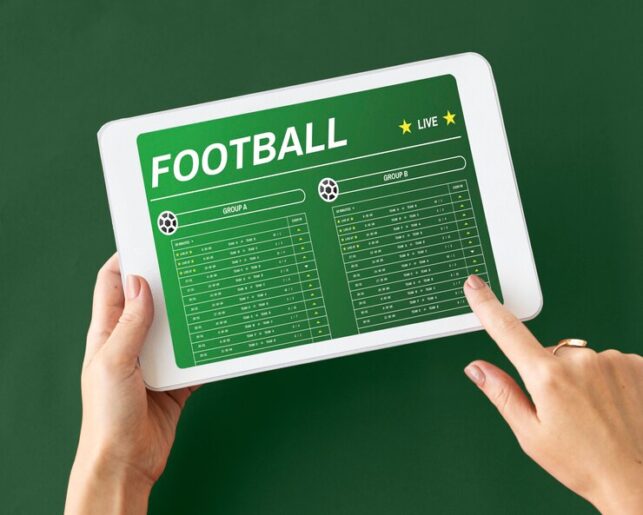Yolo247 Login, Sky247 Login, 11xplay, Laserbook247: Deep learning has emerged as a game-changer in the field of sports predictions. Gone are the days of relying solely on human intuition and statistical analysis. With the power of deep learning algorithms, sports analytics has been revolutionized, opening up a whole new world of possibilities.
The sheer potential of deep learning in sports predictions is simply mind-boggling. These algorithms are capable of processing massive amounts of data and detecting patterns that even the most skilled human analyst would overlook. From analyzing player performance and injury patterns to predicting game outcomes and identifying potential breakout stars, deep learning algorithms are transforming the way we understand and predict sports.
The excitement is palpable as researchers and analysts take full advantage of this cutting-edge technology to uncover insights that were previously hidden from view. With each passing day, the accuracy and reliability of deep learning in sports predictions continue to improve, leaving us in awe of what the future holds.
How Deep Learning Algorithms are Revolutionizing Sports Analytics
The world of sports analytics has undergone a breathtaking transformation with the advent of deep learning algorithms. With sheer precision and unparalleled accuracy, these algorithms are revolutionizing the way sports predictions are made. It’s like having a crystal ball that can decipher the intricate patterns hidden within massive data sets, providing insights that were once considered impossible.
Gone are the days of relying on gut feelings and mere intuition to predict game outcomes. Deep learning algorithms dig deep into the vast pool of historical data, uncovering hidden correlations and complex relationships that even the most seasoned human analyst might miss. With an excited buzz permeating the sports industry, teams and organizations are eager to tap into the power of this groundbreaking technology, leveraging it to gain a competitive edge and make game-changing decisions. It’s a thrilling time for sports analytics, as deep learning algorithms continue to push the boundaries and redefine what we once thought was possible.
� Deep learning algorithms have transformed the world of sports analytics.
� These algorithms offer unparalleled accuracy and precision in predicting game outcomes.
� They can uncover hidden correlations and complex relationships within massive data sets.
� Gone are the days of relying on gut feelings and intuition for predictions.
� Teams and organizations are eager to leverage this technology to gain a competitive edge.
What is deep learning?
Deep learning is a subset of machine learning that uses artificial neural networks to simulate the way the human brain works. It enables computers to learn and make predictions from large, complex datasets.
How are deep learning algorithms being used in sports analytics?
Deep learning algorithms have revolutionized sports analytics by allowing for more accurate predictions and insights. They can analyze vast amounts of data, such as player performance statistics, weather conditions, and historical trends, to uncover patterns and make predictions about future outcomes.
What are the benefits of using deep learning in sports analytics?
Deep learning algorithms can provide valuable insights that were previously difficult to obtain. They can help teams and coaches make data-driven decisions, improve player performance, optimize game strategies, and even predict the outcomes of matches or tournaments.
Can deep learning algorithms help in predicting player injuries?
Yes, deep learning algorithms can analyze various factors, such as player workload, injury history, and even biomechanical data, to predict the likelihood of a player getting injured. This information can be used to manage player workload and reduce the risk of injuries.
How accurate are the predictions made by deep learning algorithms in sports analytics?
The accuracy of predictions made by deep learning algorithms depends on the quality and quantity of data available. With access to comprehensive and relevant data, these algorithms have the potential to make highly accurate predictions, but there will always be some degree of uncertainty.
Are deep learning algorithms being used in all sports?
Deep learning algorithms are being used in a wide range of sports, including soccer, basketball, baseball, tennis, and more. Their applications are not limited to a specific sport and can be adapted to analyze various aspects of different games.
Can deep learning algorithms be used by amateur sports teams or individuals?
Yes, deep learning algorithms can be applied at different levels of sports, including amateur teams and individuals. While their availability and implementation may vary, the insights provided by these algorithms can benefit all levels of sports performance.
How do deep learning algorithms improve sports analytics compared to traditional methods?
Deep learning algorithms excel in their ability to process and analyze vast amounts of complex data, making them more effective at uncovering patterns and making predictions. Traditional methods often rely on simpler statistical models that may not capture the same level of intricacies.
Is there a limit to what deep learning algorithms can do in sports analytics?
While deep learning algorithms have revolutionized sports analytics, there are limitations. They rely heavily on the quality and quantity of data available, and there will always be uncertainties in predicting human performance. Additionally, interpreting the output of these algorithms still requires human expertise and context.
Additional:
- Is Apparel A Good Career Path?
- Is Finance A Good Career Path?
- Is Other Specialty Stores A Good Career Path?

